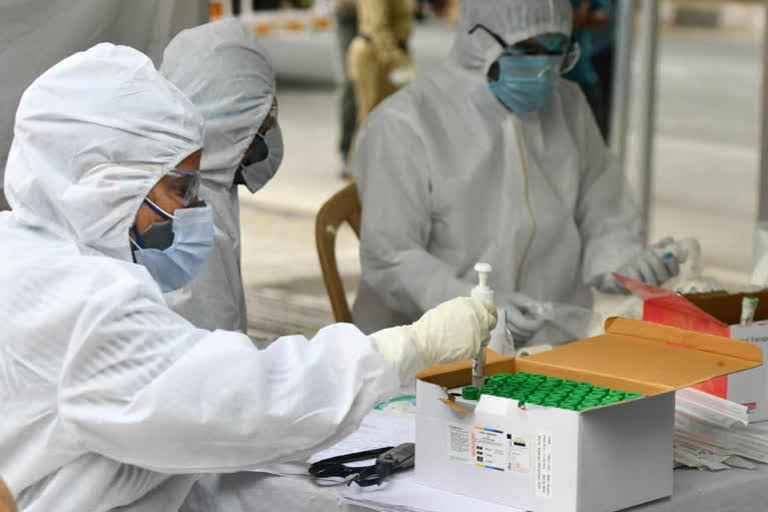Hyderabad: At a time when the world is struggling to find a vaccine to combat the coronavirus disease which has affected more than 37 lakh people and claimed more than 2 lakh lives globally, as on May 6, some 40 countries and donors, during an online summit hosted by the European Union, pledged $8bn to help develop a vaccine and fund research into the diagnosis and treatment of the disease.
Meanwhile, scientists, health experts including epidemiologists, have been focusing particularly on three types of vaccines, among others - inactivated vaccine, live vaccine and DNA or mRNA vaccine - which have the potential to treat the fast-spreading COVID-19 infection.
Here is how these vaccines work:
Live vaccine- The starting point for a live vaccine is a virus that is known, but harmless. It does not cause disease but can multiply within the cells of our bodies. This is the vector which then triggers an immune response.
Inactivated vaccine- These vaccines contain selected viral proteins or inactivated viruses. These are pathogens that have been killed. The dead viruses can no longer multiply, but the body still recognises them as intruders, so the body's defence system ensures that antibodies are produced. The vaccinated individual does not develop the disease. This method uses tried and tested technology. It is already used in vaccines against diseases such as influenza, polio, whooping cough, hepatitis B, and tetanus.
Gene-based vaccine- Compared to inactivated vaccines with viral proteins, the advantage of gene-based vaccines is that the pharmaceutical industry can produce them quickly. It will have to be able to do this because once a vaccine against COVID-19 is found, billions of doses will need to be made available to people all over the world in the shortest possible time.
The gene-based vaccine contains pure genetic information in the form of coronavirus DNA or mRNA. Individual parts of genetic information from the pathogen are packed into nanoparticles and introduced into cells. Once the vaccine is in the body, it should form harmless viral proteins that build up immune protection.
Also read: Detention of Mehbooba Mufti, two J&K leaders extended by three months
All these vaccines, however, are still being experimented with and at an early stage of development.
The first and only vaccine to have received Phase I approval, so far, in terms of COVID-19 is an mRNA vaccine developed by Germany.



